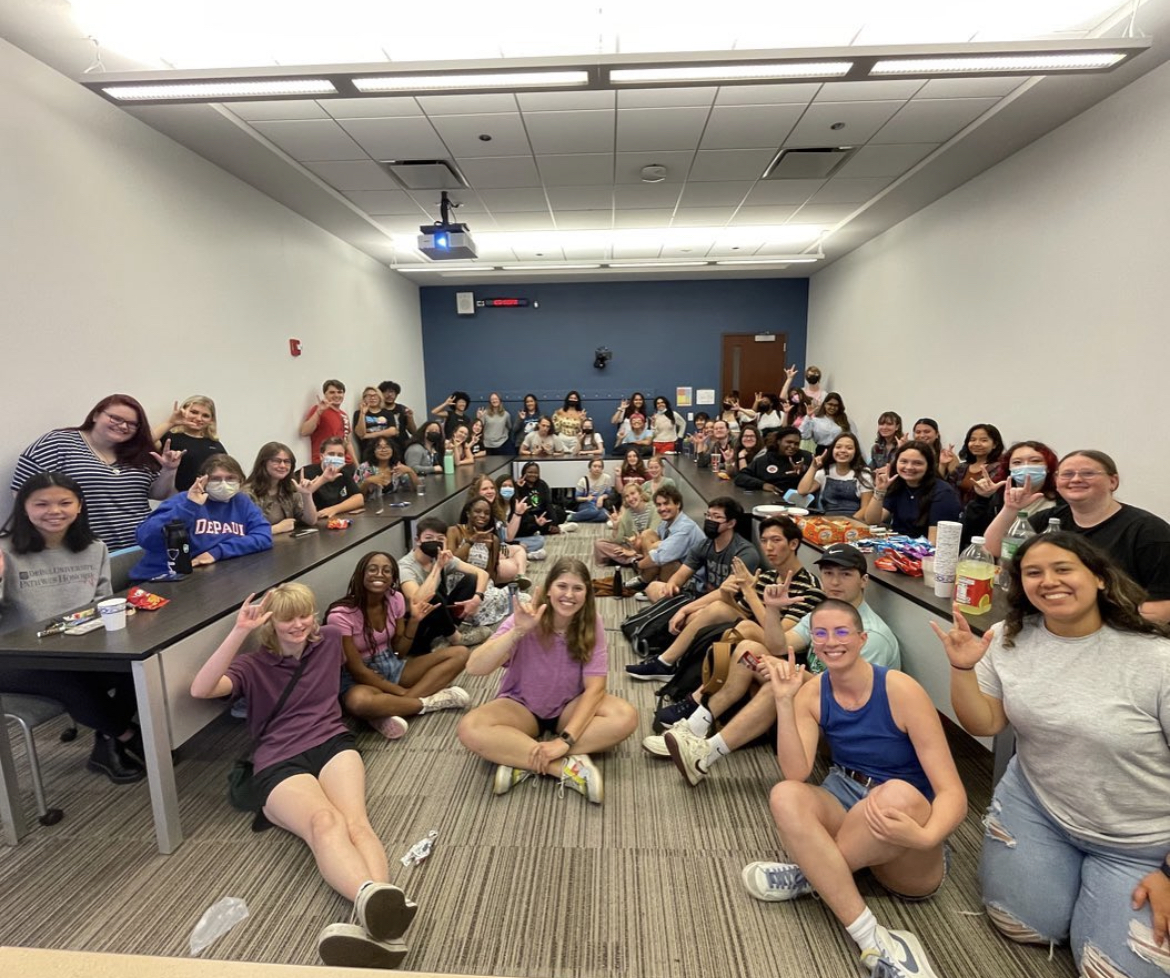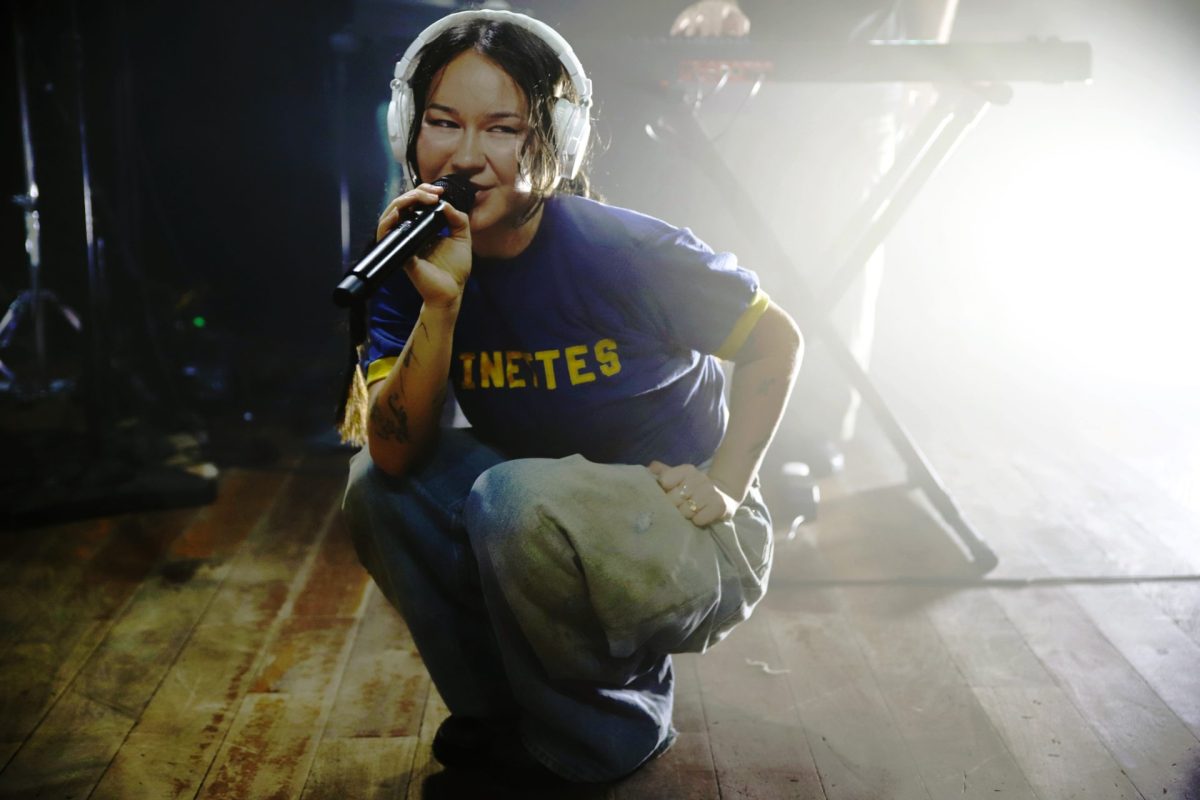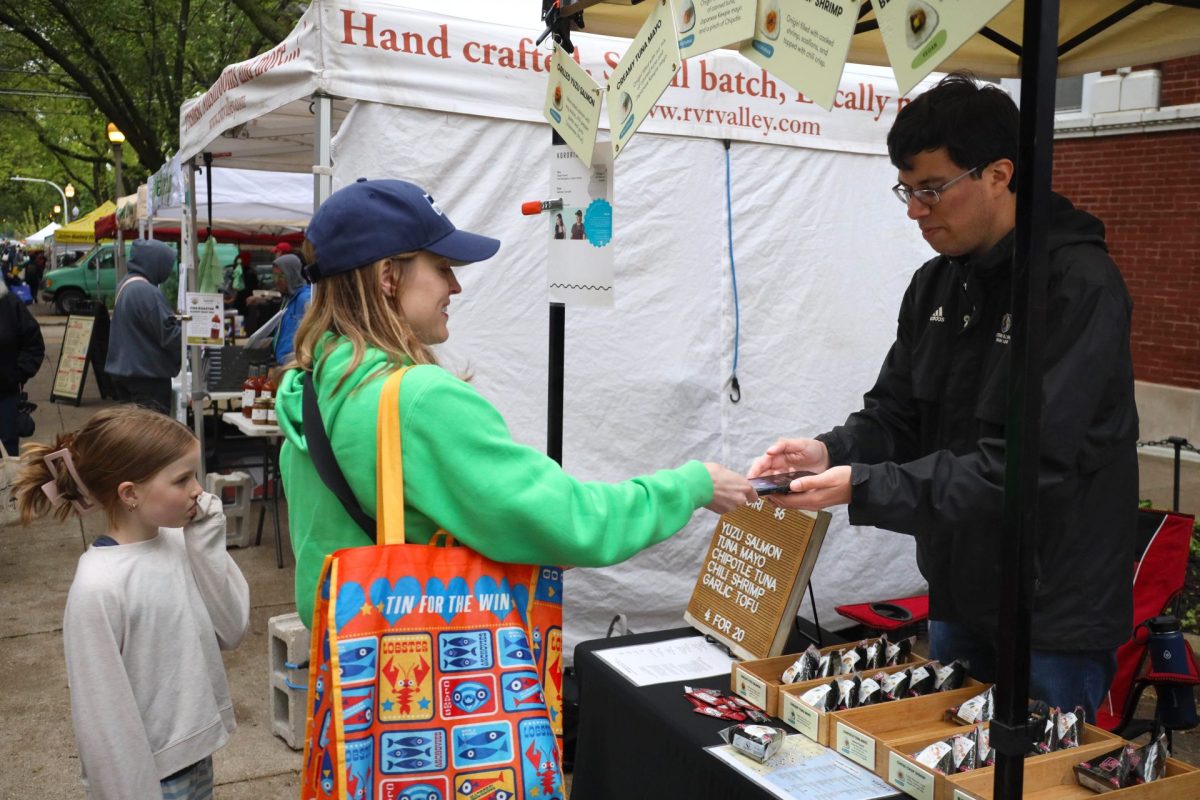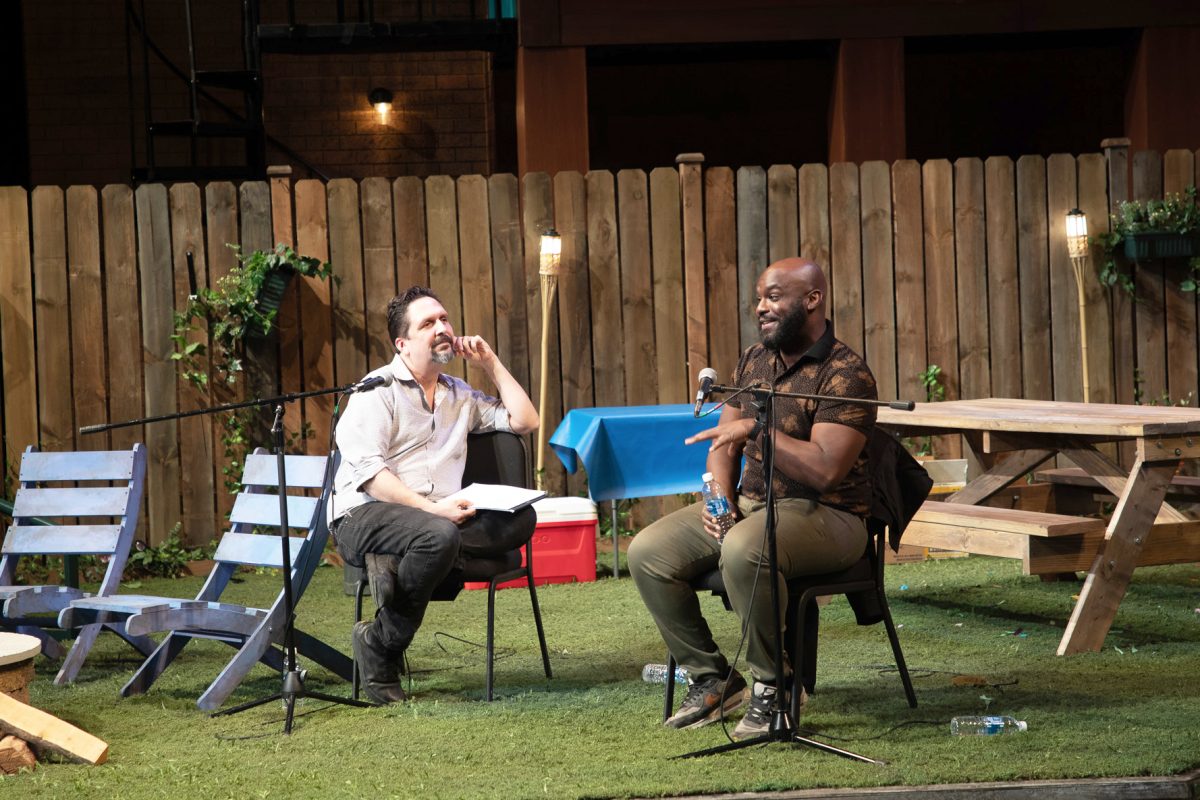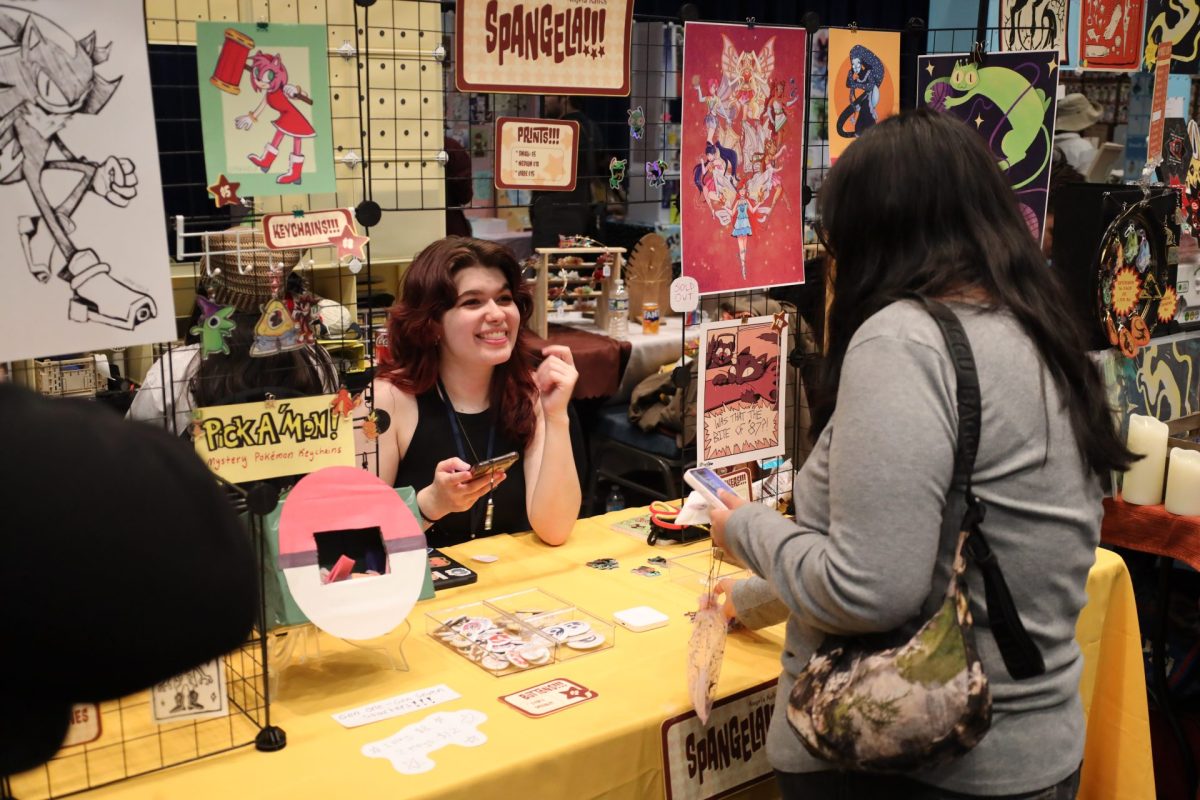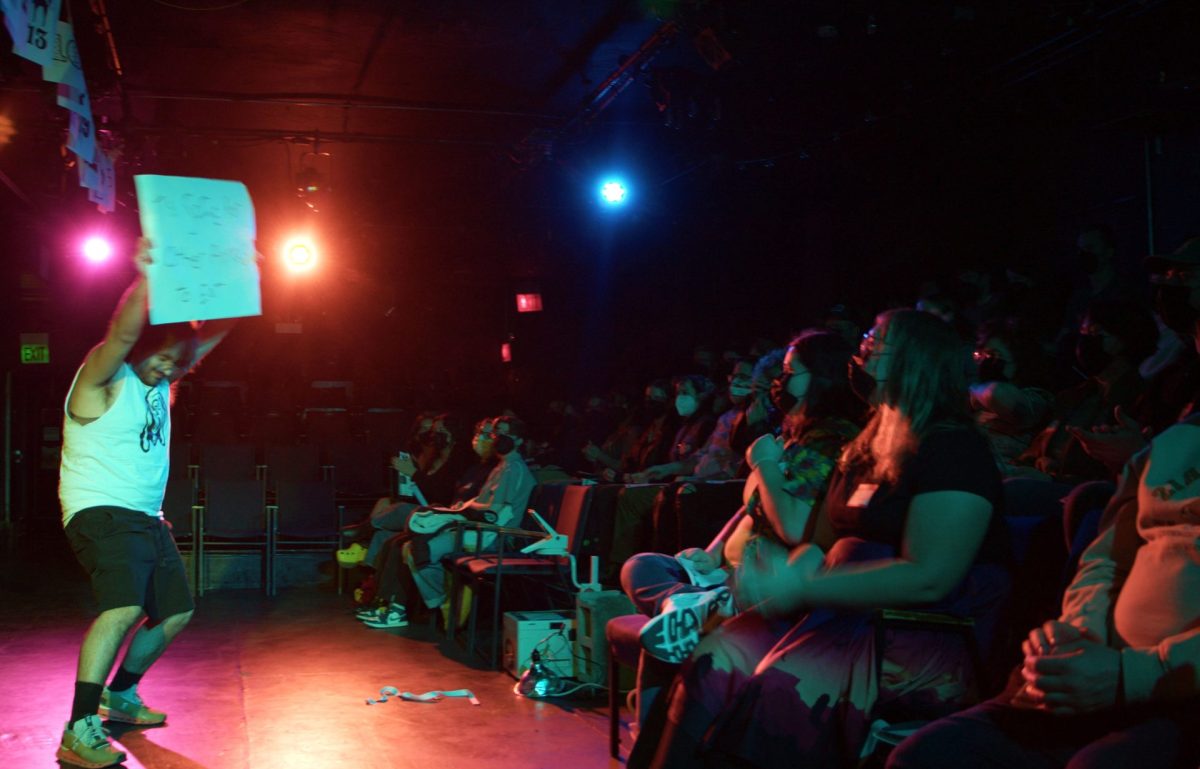Junior Sarah Hau likes to describe herself as being in an “in-between world” when it comes to her place in the Deaf community. Hau is hard of hearing due to bilateral sensorineural hearing loss, something she discovered at the age of four after her middle ears stopped developing. The use of hearing aids in each ear lets her experience some hearing.
She attended the Wisconsin School for the Deaf in the second and third grades, allowing her to learn and communicate with American Sign Language (ASL). Hau said she became fully immersed in the culture and found a sense of belonging.
However, those feelings slowly slipped away as she arrived at DePaul as an eager freshman. Hau recalled feeling like the only Deaf person on campus at times. The isolation did not end until her sophomore year when she discovered the ASL club through a faculty member.
“It was nice to finally go somewhere and see people speaking a language I grew up with,” Hau said. “They could learn from me, and I could definitely learn from them as well.”
By the end of last academic year, club leaders asked her to take over as president. One of her first actions in the position involved reversing a previously created rule that limited which students were allowed to join.
“I’m opening up the doors so that more people that aren’t in ASL classes but are interested in the culture of the language can come in and learn a little more,” Hau said. “The ASL community is out there, and some people don’t know it. They have to find us.”
Her plans for the organization involve incorporating more opportunities to participate in theater productions, movies and local deaf events.
“I want to show our members that deaf and hard of hearing people can do anything,” Hau said.
Junior Gracie Crone first heard about the meeting through her Disability Studies course. Having taken ASL courses in high school, she missed practicing the language since coming to college to study playwriting.
“I wanted to take ASL courses at DePaul, possibly even minor in it, but the only available courses were on Zoom, so I let it go,” Crone said. “But I’ve always been fascinated by Deaf culture and ASL is a beautiful language, so I wanted to give the club a shot.”
The absence of in-person learning options for ASL at DePaul was a heavily discussed topic throughout the first meeting. All seven courses offered this fall were taught online.
Due to the physical nature of signing, online teaching models create a barrier for students making it difficult to practice the language in a 2D environment.
Kes Eary, senior and vice president of the club, shared similar concerns regarding the university’s recent approach to managing the ASL department.
“I’m upset that they let go of our deaf head and moved a hearing, non-signing person to the head of the department,” Eary said. “It feels like it’s minimalizing the deaf culture on campus as a whole.”
While Eary is hearing, she recalled friends in the community struggling this school year to take advantage of campus resources such as interpreters and closed captions.
“From my experience, it seems like a lot of the responsibility for finding those things and figuring those things out falls on the deaf students,” Eary said “They really have to harass the school just to try and get equal access.”
She views the club as a space for education as well as a means of ensuring the language is not separated from the culture.
“The more people come into contact with that [deaf culture], the more people are aware of it,” Eary said. “Then you don’t get people coming up and saying, ‘Can I go watch people at deaf events?,’ or staring blatantly at a family trying to have a conversation in sign.”
Hau and Eary spent the summer discussing their hopes for what may come out of the club after reopening the doors. Their goals centered around both encouraging engagement with ASL and opening discussion up to people’s existence within the hearing culture of America.
“We can’t teach the language in a club setting, but we can share stories,” Eary said. “You can pick up things by immersion and learn the basics. That’s what we want to do here.”To get involved with the ASL club, visit their DeHub page for upcoming meetings and events.


